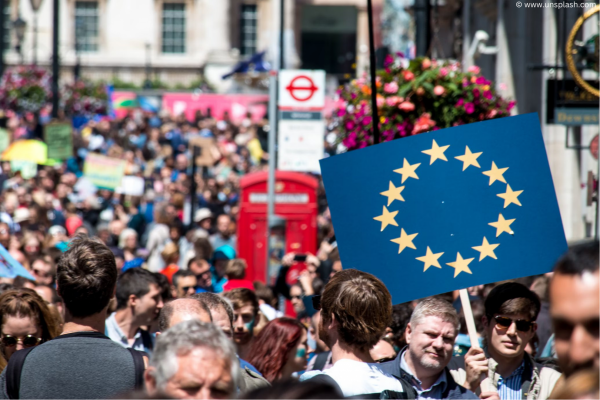Local government must retain good European relations after Brexit

In the Netherlands, a large majority of our politicians and citizens are sad to see the UK leave the EU. That said, we accept that it is happening and we are keen to ensure that our local cooperation and our business and trade relations continue. Our local, regional and national impact assessments all underline our desire to continue working closely. In their report, the Dutch parliament, stressed for example that “any restriction on free trade with Britain would inevitably be at the cost of Dutch exports, prosperity and employment."
Within the EU, the Netherlands ranks second after Germany as the country exporting the most to the UK. The Dutch Parliament also added that “there's no reason at all to allow Britain to cherry pick… but there's also no reason to prevent Britain from receiving trade advantages."
In the EU's assembly of local and regional authorities – the European Committee of the Regions (CoR) – UK local government and devolved administration have been working together with their counterparts from the 27 EU countries. Together, we have been advising the EU on new laws that impact us at the local and regional level. This represents about 70 per cent of all EU legislation. Since the CoR was established in 1992, we have built a strong track record of working together, sharing best-practices and lessons-learnt.
Around five years ago, we also set-up the European Conservatives and Reformists Group together with UK Conservative politicians from local government and the devolved administrations. Together, we have been advocating a reformed EU led by the principle of localism so that powers are given back to local communities. With the UK's departure from the EU, politicians like me will be losing a key ally in the EU decision-making process but going forward, our Group will be pushing for a mutually beneficial deal to be carved out as soon as possible. In such a deal, it will be crucial to take into account the voice of local government and devolved administrations'.
The ECR Group in the CoR has been making the point that regardless of what position everyone may have had on the referendum itself, UK citizens have made their choice and we should therefore focus on establishing a new relationship that is mutually beneficial.
As the CoR's leadership, composed of the President of the CoR and the leaders of the political groups such as me, we embarked on a fact-finding mission to help the negotiation process for the UK's departure from the EU. We took this step after a meeting with the EU chief negotiator Michel Barnier, where we agreed to provide local and regional evidence. As part of our fact-finding activities, we met with the devolved administrations and local government representatives in the UK. We also discussed the specific policy angles of Brexit with local and regional governments from all 28 EU countries and produced a resolution setting out some of the key local and regional government views.
Our fact-finding activities showed the interest and indeed need, in continuing the sharing of best-practices and lessons learnt at the level of devolved administrations and local and regional government. Cooperation will need to continue not just in the form of cross-border cooperation between the UK and the Republic of Ireland, for example, but also in the form of business links, the buying and selling of services as well as collectively addressing things like illegal migration, climate change and mitigating the risk of natural disasters.
The main message from the UK's devolved administrations and local government was the desire for the new relationship between the UK and EU27 to establish a close form of cooperation enabling free trade and for it to include a structured cooperation at the sub-national level so that the sharing of best-practices could continue. The desire to maintain cross-border cooperation was also underlined. Some authorities are also hoping that a deeper form of association could still be applied for several policies of importance. In the case of Northern Ireland, concerns were expressed about how the peace process could be negatively affected. Most UK local authorities and devolved administrations underlined their wish to see some of the powers repatriated back from Brussels to be further devolved beyond Westminster to local government. We were also told that new UK funding is urgently needed to fill the gap that will be created by the UK no longer being eligible for EU funding instruments.
The bottom-line is, when we think about how to structure the post-Brexit relationship between the UK and the EU, we need to also think about devolved administrations and local and regional governments. Many of the global challenges we face that impact our localities depend on local action. It is crucial therefore, that we think about how the relationship of the different tiers of government can continue so that we can continue to share best-practices and ideas. We are currently trying to find new platforms for sub-national cooperation after the UK leaves the EU. One option being explored is the creation of a CoR-UK Joint Commission that would explore the opportunities for continuing dialogue and collaboration between the CoR and UK local and regional authorities, and devolved administrations.
As Conservatives across Europe, we also need to continue to work together in developing free market and localist solutions to global trends. We also need to think about how to continue our structured political dialogue. We don't need to legislate together to be able to continue sharing best-practices and continue cooperating on areas where we have common interests.
The article was originally published in the Conservative Home on October 30.

